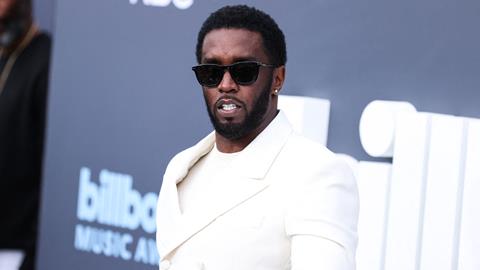When terrible stories of abuse hit the headlines, many people are happy to reject the perpetrators as “bad” and happy to consider themselves as “good”. But is it really that simple to make these moral categories of human beings?
The hot conversation topic of the week has been the recent Sean Combs controversy. In September the rapper, who is better known as Puff Daddy or P Diddy, was arrested on charges related to sex trafficking, racketeering, and other serious accusations. Over 120 individuals have come forward, accusing Combs of sexual exploitation, abuse, and threats, with some claims involving a trafficking ring. Combs has denied all the allegations.
As the media and public digest these revelations, the scandal has sparked intense discussion, not just about Combs himself, but also about other high-profile figures who may be implicated. What makes this particular case more shocking is the suspected involvement of individuals historically viewed as “good guys,” those whose public personas have long been associated with charitable work or positive social influence. In the halls of my office, I’ve overheard colleagues making quick judgments, hastily placing these once-revered figures into the “bad guy” bucket.
This reaction got me thinking about how we, as a society, tend to classify people into simple categories: good or bad, hero or villain, guilty or innocent. These binary judgments are often made swiftly, without much room for nuance. But is morality really so black and white?
Read more:
What is the Gospel?
Falling from Grace: Addressing power, leadership and abuse in the Church
The Illusion of ‘Good’ and ‘Bad’
In my experience, most people view themselves as “good”—not perfect, but good enough. Yet, ‘good’ is an incredibly subjective term, and the more we examine it, the more complex it becomes. A person can be perceived as good for some of their actions, while harbouring dark, private flaws. When public figures like Combs fall from grace, it often feels like a collective awakening to the fact that humans are inherently flawed and multi-dimensional.
We see polarising opinions all around us—on social media, in the news, and even within our own circles—often sparked by different personal definitions of what “good” actually means. Yet these moral evaluations are often incomplete. What I’ve noticed is that the idea of good is fluid, and the criteria we use to judge ourselves and others are often inconsistent.
A Christian Perspective on Goodness
From a Christian viewpoint, goodness is not determined by human opinion but by the character of God. Christianity teaches that only God is truly good, and by that standard, none of us measure up. When I hold myself up against the perfect life of Jesus of Nazareth, I’m forced to admit that I fall dramatically short. I may want to think of myself as a “good guy,” but deep down, I know my thoughts, my motivations, and my actions are far from perfect. If my innermost thoughts were broadcast for all to see, I imagine many people would quickly categorize me into that same “bad guy” bucket.
But this is where my faith gives me a profound sense of peace. Despite my failures, I don’t have to remain in that “Bad guy bucket” because of the work Jesus Christ did on the cross. While I am deeply aware of my own shortcomings, I also know I am loved, forgiven, and redeemed. It’s a paradox—feeling both more unworthy and yet more valued in God’s eyes than ever before. This is the grace that Christianity offers, and it’s something I hope others can experience as well.
Get access to exclusive bonus content & updates: register & sign up to the Premier Unbelievable? newsletter!
Beyond the Buckets
The Sean Combs scandal also forces us to confront our instinct to quickly judge others. But perhaps it should also invite us to reflect on our own morality. The truth is, we all live in shades of grey, not in stark black and white. People are capable of both good and evil, and public figures are no exception.
At the end of the day, our ability to judge the hearts and minds of others is limited. However, what we can control is how we respond to our own failings and the failings of those around us. For me, my response is to cling to the grace offered through Christ, knowing that while I may fall short, I am not defined by my mistakes.
So, as we continue to hear more about this controversy and there is much speculation about the many public figures who may be implicated, I encourage us all to take a step back. Let’s resist the temptation to throw people into buckets of ‘good’ or ‘bad’ without reflection. Instead, let’s acknowledge the complexity of human nature and extend both grace and accountability where it is due. And, if you’re open to it, I pray that you too may find peace in the ultimate goodness found in Jesus Christ.
Drew Cordell is a business consultant who has worked alongside some of the world’s most successful businesses and their leaders in an extensive corporate career in both London and Australia. His new book Honest Christianity: Why People Choose to Believe is available on Amazon and all good bookstores.























